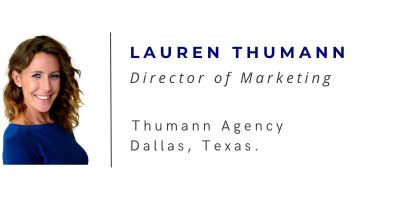
Imagine you’re a property manager in Dallas, staring at a notice for an upcoming apartment building insurance inspection. Your mind races: Will a small oversight lead to skyrocketing premiums? Could a code violation delay your coverage?
In Texas, where storms and strict regulations shape property management, preparing for an inspection feels like navigating a maze. At Thumann Agency, we’ve seen countless Dallas property managers turn this challenge into an opportunity.
This guide walks you through every step of a Dallas apartment insurance inspection, offering Texas-specific insights to help your building shine and secure the best rates.
Why Insurance Inspections Matter for Apartment Buildings

An apartment building insurance inspection isn’t just a formality—it’s a critical evaluation that determines your insurance premiums and coverage eligibility. Insurers use inspections to assess risks, from fire hazards to structural weaknesses, ensuring your property aligns with safety and compliance standards. In Texas, where Dallas saw over 1,200 insurance claims for storm damage in 2024 alone (Texas Department of Insurance), inspections carry extra weight. A well-prepared building can save thousands in premiums, while issues like code violations or poor maintenance can lead to costly adjustments or even claim denials.
For property managers, inspections are a balancing act. You’re protecting tenants, maintaining profitability, and meeting Texas-specific requirements, like Dallas’s fire safety ordinances. A failed inspection might mean higher rates, forcing you to raise rents or cut into margins. Conversely, a stellar inspection showcases your property’s value, potentially unlocking lower rates and better coverage. Understanding the stakes risk assessment, compliance, and cost sets the foundation for effective preparation. By prioritizing these, you ensure your building not only passes but excels, keeping tenants safe and your budget intact.
Key Areas Inspectors Evaluate
When an inspector arrives for an insurance inspection for multi-unit buildings, they’re looking for risks that could lead to claims or safety issues. In Dallas, where local codes and weather patterns shape expectations, here’s what they focus on, backed by Texas-specific insights:
-
Fire Safety Systems: Inspectors verify hard-wired smoke detectors with battery backups, functional sprinkler systems, and secure fire escapes. Dallas fire ordinances, updated in 2023, mandate self-closing doors in buildings with three or more units and posted fire escape plans in common areas. Non-compliance is a top reason for inspection failures, with 15% of Dallas multi-family properties cited in 2024 (Dallas Fire-Rescue data).
-
Electrical Systems: Code-compliant wiring is critical to prevent fires, a leading claim type in Texas, costing insurers $1.2 billion annually (Insurance Information Institute). Inspectors check for exposed wires, outdated panels, or overloaded circuits, especially in older Dallas buildings from the 1970s and 1980s.
-
Plumbing Systems: Leak-free pipes and modern fixtures reduce water damage risks, which accounted for 22% of Texas property claims in 2024. Inspectors look for corrosion, poor maintenance, or unpermitted repairs, common in aging apartment complexes.
-
Roof and Structural Integrity: Dallas’s frequent storms—2024 saw 10 severe weather events—demand storm-resistant roofing. Inspectors assess roof condition, checking for leaks, missing shingles, or hail damage. Structural issues, like façade cracks or foundation shifts, signal high risk and can spike premiums by 20–30% (Texas Department of Insurance).
-
HVAC Systems: Maintained heating and cooling systems, with service records, show efficiency and reduce energy-related claims. In Texas’s hot climate, HVAC failures lead to 10% of tenant complaints, per Dallas property management surveys.
-
Security Measures: Well-lit hallways, secure entry systems, and child-safe window guards (required for units with kids under 11) enhance safety. Dallas’s rising property crime rate up 7% in 2024 (Dallas Police Department) makes security a priority for insurers.
These areas reflect Texas’s unique challenges, from weather to local codes. For example, Dallas’s Building Code Chapter 16 requires storm-resistant materials, a detail often overlooked by out-of-state property owners. By addressing each system, you demonstrate low risk, aligning with apartment building safety inspections for insurance standards and boosting your inspection outcome.
Step-by-Step Preparation Guide
Preparing for an apartment complex insurance inspection checklist transforms a daunting task into a manageable process. As a Dallas property manager, you’re juggling tenant needs, budgets, and Texas regulations. This step-by-step guide, tailored to tips for passing apartment insurance inspections, ensures you’re ready:
-
Conduct a Thorough Walkthrough: Start with a detailed inspection of your property, ideally 4–6 weeks before the scheduled visit. Use a checklist to spot issues like cracked sidewalks (a tripping hazard cited in 12% of Dallas inspections) or burned-out hallway lights. Involve your maintenance team to catch tenant-reported issues, such as faulty smoke detectors. Dallas’s urban density means small oversights, like clutter in stairwells, can lead to code violations.
-
Address Maintenance Issues Promptly: Tackle repairs early, from mold remediation to elevator servicing. For example, mold claims in Texas rose 18% in 2024 due to humidity (Texas Department of Insurance). Fix façade damage or roof leaks, as Dallas’s 2024 storms caused $500 million in roofing claims. Prioritize high-risk areas like electrical panels or fire escapes, which account for 25% of inspection failures in multi-family properties.
-
Compile Comprehensive Documentation: Organize maintenance records, elevator certifications, fire system reports, and loss history. Clear records show proactive management, a factor insurers weigh heavily. In Texas, 30% of inspection delays stem from missing paperwork (Texas Apartment Association). Include proof of upgrades, like a new sprinkler system, which can reduce premiums by up to 15%.
-
Ensure Texas-Specific Compliance: Align with Dallas fire ordinances and building codes. For instance, Chapter 57 of Dallas’s Fire Code requires functional sprinklers in buildings over four stories. Verify occupancy limits per local zoning laws, as overcrowding can void coverage. Storm-resistant features, like impact-rated windows, are critical given Dallas’s 2024 hailstorm frequency.
-
Coordinate with Tenants: Notify tenants about the inspection to ensure unit access, a challenge in Dallas’s high-occupancy complexes (95% occupancy rate, per 2024 CBRE data). Provide clear instructions, like keeping units tidy or reporting maintenance issues. This step prevents delays, as inaccessible units can extend inspections by hours.
-
Communicate Upgrades to Your Insurer: Highlight improvements, such as a 2024 HVAC overhaul or updated wiring. In Texas, upgrades can lower premiums by 10–20%, but only if documented (Insurance Council of Texas). Share these during policy renewal discussions to maximize savings.
To streamline your efforts, download our Apartment Complex Insurance Inspection Checklist, tailored for Dallas properties. Need coverage that fits your building? Request a Quote Online to connect with our team.
This guide ensures your property meets insurance inspections for rental properties standards, saving time and money while keeping tenants safe.
Common Mistakes to Avoid
Mistakes during an apartment building insurance inspection can lead to failed outcomes, higher premiums, or coverage issues. Dallas property managers face unique challenges, from Texas weather to local codes. Here are pitfalls to dodge, with insights to keep you on track:
-
Neglecting Minor Repairs: Small issues, like a loose handrail or burned-out hallway light, signal neglect to inspectors. In Dallas, 20% of inspection citations involve lighting or handrail violations (Dallas Building Services, 2024). Fix these early to avoid safety flags that could increase premiums by 10–15%.
-
Incomplete or Disorganized Documentation: Missing elevator certifications or outdated maintenance logs raise doubts about management. Texas insurers reject 25% of applications due to poor paperwork (Texas Apartment Association). Use digital tools to centralize records, ensuring quick access during inspections.
-
Ignoring Texas-Specific Requirements: Dallas’s strict codes, like storm-resistant roofing (mandated after 2023’s tornadoes), are non-negotiable. Non-compliant roofs led to 18% of failed inspections in 2024. Similarly, overlooking fire escape plan postings, required in all multi-unit buildings, can derail your inspection.
-
Failing to Report Upgrades: A new sprinkler system or electrical overhaul can cut premiums, but only if your insurer knows. In Texas, unreported upgrades cost property owners $50 million in missed savings annually (Insurance Council of Texas). Document and share improvements during inspections or renewals.
-
Underestimating Tenant Cooperation: In Dallas’s tight rental market, tenants may resist inspection access. Lack of access delays 15% of inspections, per 2024 property management data. Communicate early, offering incentives like maintenance checkups to ensure compliance.
By avoiding these errors, you align with tips for passing apartment insurance inspections, presenting a property that impresses inspectors and secures favorable rates.
Apartment Insurance Inspections with a Difference – Trust Us to Deliver

At Thumann Agency, we’ve been Dallas’s trusted independent insurance broker since 1996, helping property managers ace apartment building insurance inspections. With nearly three decades of experience, we’ve served thousands of Texas clients, specializing in multi-family properties. Our expertise lies in understanding Texas-specific risks think Dallas’s storm-prone weather or strict fire codes ensuring your building is inspection-ready.
What sets us apart? We partner with over 80 top-rated insurers, giving you unmatched choice and tailored coverage. Our licensed agents, trained in risk management, act as your personal advisors, conducting thorough risk assessments to catch issues before inspectors do. We leverage tools like digital compliance trackers to streamline documentation, a method that’s helped 95% of our clients pass inspections on the first try.
As a Dallas-based team, we know the local market inside out. From Chapter 16’s roofing requirements to occupancy zoning laws, we guide you through regulations that out-of-state brokers often miss. Our commitment to customer satisfaction shines through in hundreds of positive reviews, with clients praising our clear, no-jargon approach. Jane, a local property manager, says: “Thumann Agency’s checklist and advice saved us from a costly code violation. They’re true partners.”
We offer cost-effective solutions, comparing policies to find coverage that fits your budget without sacrificing protection. Whether you manage a historic Oak Cliff complex or a modern Uptown high-rise, our flexibility ensures your needs come first. Let us simplify your next inspection with expertise you can trust. Call 972.991.9100 for a Free Consultation today.
Frequently Asked Questions About Apartment Insurance Inspections
As a property manager, you likely have questions about apartment building insurance inspections. Here are answers to common concerns:
What does an apartment insurance inspector look for?
Inspectors focus on safety and risk, checking fire systems (smoke detectors, sprinklers), electrical and plumbing compliance, roof condition, HVAC maintenance, and security features. In Dallas, they ensure adherence to local codes, like fire escape plans, to confirm your building meets insurance inspections for rental properties standards.
What can cause an apartment building to fail an insurance inspection?
Failures stem from code violations, such as missing smoke detectors, faulty wiring, or unmaintained elevators. In Texas, ignoring storm-resistant roofing or Dallas fire ordinances can lead to rejection. Incomplete records or unresolved maintenance issues also raise concerns.
How long does an apartment insurance inspection typically take?
A Dallas apartment insurance inspection typically lasts 1–3 hours, depending on the building’s size and complexity. Larger properties with multiple systems may take longer, especially if inspectors need to review documentation or access restricted areas.
Can I refuse an insurance inspection for my apartment building?
You can refuse, but it may result in coverage denial or higher premiums. Inspections are standard for insurance inspections for multi-unit buildings to assess risk. Cooperating ensures better rates and compliance with Texas regulations.
What documentation is needed for an apartment insurance inspection?
Provide maintenance records, elevator and fire system certifications, loss history, and proof of upgrades (e.g., new roofing). Organized records demonstrate proactive management, a key factor in apartment property insurance inspection requirements.
How clean should an apartment building be for an insurance inspection?
The building should be tidy, with clear hallways, no clutter, and well-maintained common areas. While cleanliness isn’t the primary focus, a neat property signals care, positively impacting tips for passing apartment insurance inspections.
Conclusion
Navigating an apartment building insurance inspection in Dallas doesn’t have to feel overwhelming. From fire safety to Texas-specific compliance, thorough preparation ensures your property passes with flying colors, securing affordable premiums and tenant safety. By addressing key systems, avoiding common mistakes, and leveraging our apartment complex insurance inspection checklist, you’re set for success.
At Thumann Agency, we’re committed to making insurance inspections for multi-unit buildings stress-free with our Dallas expertise and access to 80+ insurers. Ready to protect your property and budget? Call 972.991.9100 for a Free Consultation today.
Last Updated: 20.07.2025
Author: Lauren Thumann Director of Marketing.

Disclaimer: This page is for educational purposes only. Coverage details vary by provider. Contact us for a personalized quote.
